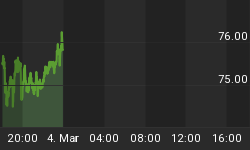While the European Central Bank (ECB) kept its Refi rate unchanged at 3.50% this morning, the policymakers turned notably more hawkish, signaling not only that rates will go up on March 8 but also that 3.75% is unlikely to be the peak.
The bank's policy statement declared that "strong vigilance remains of the essence so as to ensure that risks to price stability over the medium term do not materialize." The "strong vigilance" mantra was reiterated by Governor Trichet in his subsequent press briefing - a clear signal of a rate hike next month. While Trichet predictably refused to be drawn on where interest rates are headed in Q2, there was plenty of emphasis from the Governing Council members this morning on upside risks.
In addition to the usual warnings about ample liquidity and upside risks from oil prices, the statement was particularly forthright about the potential for stronger-than-expected wage developments, given the recent "favorable momentum of real GDP growth," the "ongoing improvement in labor market performance," and the fact that capacity utilization measures "are approaching the peak levels reached in 2000." Although January's headline Euro-zone inflation rate came in at a relatively-contained 1.9%, various policymakers have been waving the same warning flags over the past couple of weeks.
There has certainly been plenty of recent evidence that the 'zone economy enjoyed a very solid start to 2007. The NTC's Euro-zone services sector activity index climbed from 57.2 in December to 57.9 in January, the index's highest reading since mid-2006. Additionally, higher wages helped to push up the input price index to an 8-month high of 60.3, while employment hit a 7-month high. The Euro-zone manufacturing PMI overall activity index (released last week) slipped to 55.5 in January (56.5 in December), but the output price index jumped from 55.9 to 58.4, a record high since the series began in late-2002. And, Eurostat reported last week that Euro-zone unemployment fell to 7.5% in December, down from 7.6% in November and the lowest rate since the series began back in 1993.
So, expect the Refi rate to rise to 3.75% on March 8. If the data continue to show healthy levels of GDP growth (flash Q4 GDP is due February 13) and a tightening labor market, then a 4.00% Refi rate is likely by the end of Q2. The April 12 policy meeting statement will be a key indicator of whether the next hike will be on May 10 or on June 6.
Bank of England on Hold
The Bank of England (BoE) kept its repo rate unchanged at 5.25% today, having shocked the markets with a 25bp rate hike last month (see Daily Global Commentary, January 11: "Bank of England Surprises With a Rate Hike"). We'll have to wait until the meeting minutes are released February 21 to know how the nine members of the Monetary Policy Committee feel about the outlook. Given that last month's rate hike was made on a 5-4 vote, whether or not rates go up again on March 8 or April 5 is a close call. Next week's quarterly BoE Inflation report (due Feb. 14) will shed some light.
Meanwhile, data releases over the past couple of weeks suggest that the recent resurgence in the housing market may have peaked. While mortgage lenders reported rising house prices again in January, the pace of increase was relatively-subdued. The BoE reported that mortgage lending rose a record £10.58 billion in December, but mortgage approvals, a forward-looking indicator of housing market strength, dropped to the weakest level since April, falling more than 12% from November to just 113,000.
On the other hand, although the services PMI headline activity index eased to 59.2 last month (from a near-decade high of 60.6 in December), wage costs reportedly drove the input prices index up to a four-month high of 60.3 while the prices charged index rose back up to 55.2 (a five-month high). This suggests inflationary pressures are still lurking.
So, it's a case of watch the data, and wait for the Minutes and the Inflation Report to give pointers on whether the interest rate peak for this cycle will be 5.25% or 5.50%.















